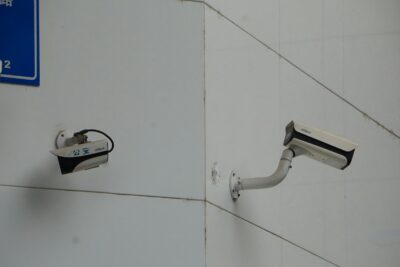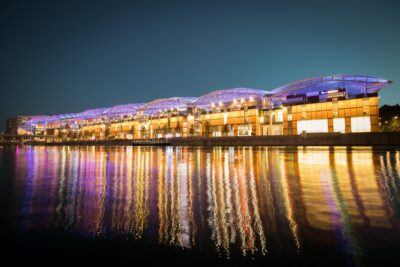The Crucial Role of Research and Development in CCS Technologies
Improving Capture Efficiency
The continuous advancement of CCS technologies (Carbon Capture and Storage) is pivotal in addressing climate change by significantly reducing carbon emissions. In the dynamic energy landscapes of Saudi Arabia and the UAE, research and development in CCS technologies are essential for improving capture efficiency, making these processes more viable and effective. Improving capture efficiency involves enhancing the technology’s ability to capture a higher percentage of CO2 emissions from industrial sources, thereby reducing the overall carbon footprint.
In Riyadh, ongoing research focuses on optimizing the chemical absorption processes used in CCS technologies. By refining the solvents and catalysts involved, researchers aim to increase the amount of CO2 captured while minimizing energy consumption. This not only enhances the efficiency of the capture process but also makes it more economically feasible for large-scale deployment. Saudi Arabia’s commitment to sustainability, as outlined in Vision 2030, emphasizes the importance of such technological advancements in achieving its environmental goals.
Dubai, known for its innovative approach to environmental sustainability, is also at the forefront of developing advanced CCS technologies. Researchers in the UAE are exploring the use of novel materials, such as metal-organic frameworks (MOFs), which have shown promise in capturing CO2 with high efficiency. These materials offer a greater surface area for adsorption, making the capture process more effective and reducing the energy required for regeneration. By investing in such cutting-edge research, Dubai aims to lead the way in sustainable energy solutions.
Reducing Costs for Wider Adoption
One of the significant barriers to the widespread adoption of CCS technologies is the high cost associated with capture, transportation, and storage. Research and development efforts in Saudi Arabia and the UAE are focused on reducing these costs, making CCS a more attractive option for industries aiming to lower their carbon emissions. By developing more cost-effective solutions, these regions can drive the adoption of CCS technologies on a larger scale, contributing to global efforts to combat climate change.
In Riyadh, innovative approaches to cost reduction include the integration of CCS with existing industrial processes. By capturing CO2 as a byproduct of other industrial activities, companies can offset some of the costs associated with the capture process. Additionally, advancements in pipeline and transportation technologies are reducing the costs of moving captured CO2 to storage sites. These developments are crucial for making CCS a financially viable option for industries across Saudi Arabia.
Dubai’s efforts in reducing the costs of CCS technologies are also noteworthy. The UAE is exploring the potential of utilizing existing oil and gas infrastructure for CO2 storage, which can significantly reduce the investment required for new storage facilities. By repurposing old oil wells for CO2 injection, Dubai can leverage its extensive oil and gas network to support CCS projects. This innovative approach not only reduces costs but also provides a sustainable solution for the long-term storage of captured carbon.
Addressing Energy Requirements and Environmental Impacts
CCS technologies, while effective in reducing CO2 emissions, often require substantial energy input, which can offset some of the environmental benefits. Research and development efforts in Saudi Arabia and the UAE are focused on addressing these energy requirements and minimizing the overall environmental impact of CCS processes. By developing more energy-efficient technologies and optimizing existing systems, these regions aim to enhance the sustainability of CCS.
In Riyadh, researchers are exploring the use of renewable energy sources to power CCS processes. By integrating solar and wind energy into the capture and storage systems, the overall energy footprint of CCS can be reduced. This approach not only makes the process more sustainable but also aligns with Saudi Arabia’s broader renewable energy goals. The development of hybrid systems that combine CCS with renewable energy is a key area of focus for the country’s research initiatives.
Dubai’s approach to addressing the energy requirements of CCS technologies includes the development of more efficient capture methods. Researchers in the UAE are investigating advanced separation techniques, such as membrane-based capture, which require less energy compared to traditional methods. Additionally, the use of waste heat from industrial processes to power CCS operations is being explored, further enhancing the overall efficiency and sustainability of the technology.
Strategic Implementation and Future Prospects
Leadership and Management in Advancing CCS Technologies
Effective leadership and strategic management are crucial for advancing CCS technologies and ensuring their successful implementation. In Saudi Arabia and the UAE, leaders must be equipped to navigate the complexities of developing and deploying these advanced technologies. Training programs and workshops focusing on project management, sustainability, and technological innovation can equip business leaders and policymakers with the skills needed to drive CCS initiatives forward.
In Riyadh, fostering a culture of innovation and collaboration among stakeholders is essential for the success of CCS projects. By encouraging partnerships between government agencies, private sector companies, and research institutions, leaders can develop comprehensive strategies that address the technical, financial, and regulatory aspects of CCS implementation. This collaborative approach not only enhances project outcomes but also builds public trust and support for CCS technologies.
Dubai’s leadership in CCS technology development is supported by effective project management practices. Project managers must develop detailed plans that outline the goals, timelines, and resources required for each phase of CCS projects. Regular progress reviews and adjustments based on feedback can help address any challenges that arise, ensuring that projects stay on track and achieve their objectives. This meticulous approach to project management is essential for delivering the full economic and environmental benefits of CCS technologies.
Community Engagement and Stakeholder Collaboration
Community engagement and stakeholder collaboration are critical components of successful CCS technology projects. In Saudi Arabia and the UAE, involving local communities in the planning and implementation of CCS projects ensures that their needs and concerns are addressed. By fostering a sense of ownership and participation, project leaders can build strong support for CCS initiatives, enhancing their long-term sustainability and success.
In Riyadh, community engagement can take the form of public consultations, workshops, and informational sessions that educate residents about the benefits of CCS technologies. By providing a platform for open dialogue, project leaders can gather valuable feedback and address any concerns that may arise. This participatory approach not only strengthens community support but also ensures that CCS projects align with local priorities and values.
In Dubai, collaboration between stakeholders such as government agencies, private sector companies, and non-governmental organizations (NGOs) is essential for the successful implementation of CCS projects. By working together, these stakeholders can leverage their expertise and resources to overcome challenges and achieve common goals. This collaborative approach enhances the overall effectiveness of CCS projects, delivering economic and environmental benefits to the community.
Conclusion: Paving the Way for a Sustainable Future with CCS Technologies
The continuous advancement of CCS technologies through dedicated research and development is essential for improving capture efficiency, reducing costs, and addressing energy requirements and environmental impacts. In regions like Saudi Arabia and the UAE, where sustainability and innovation are key priorities, investing in CCS technologies is crucial for achieving long-term environmental and economic goals.
Effective leadership, strategic project management, and community engagement are essential for the successful implementation of CCS technologies. By fostering a culture of innovation and collaboration, leaders in Saudi Arabia and the UAE can drive the adoption of advanced CCS technologies that enhance environmental sustainability and economic resilience.
As the world transitions to cleaner energy sources, the role of CCS technologies in reducing carbon emissions and combating climate change becomes increasingly important. By embracing the potential of CCS technologies, Saudi Arabia and the UAE can build a sustainable future, providing economic opportunities for their residents and enhancing their global competitiveness. Through strategic planning and continuous innovation, these regions can lead the way in CCS technology development and implementation, setting a positive example for other countries to follow.
—
#CCSTechnologies, #CarbonCapture, #ResearchAndDevelopment, #CaptureEfficiency, #ReducingCosts, #EnvironmentalImpact, #UAESustainability, #SaudiArabiaEnergyProjects, #RenewableEnergy, #Leadership, #ProjectManagement























